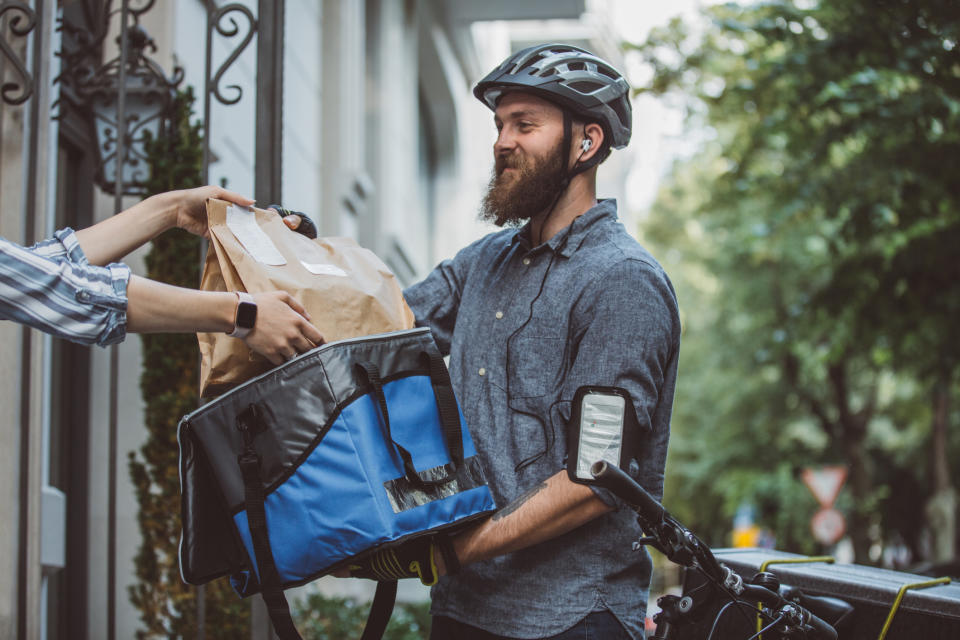Tax tips for gig economy workers

Over the last few years, thousands of Australians have changed the way they work, moving into the sharing (or “gig” economy) either to boost the income they make from their “day job” or to step outside the employment rat-race to enjoy the freedom of being their own boss.
The problem is that far too many people who’ve made the transition haven’t given any thought to the tax implications. In response, the ATO has put sharing economy workers on notice that they are watching what you do.
With tens of thousands of Australians now offering products or services through organisations like Uber, Airbnb, Airtasker and many others, as well as starting side-hustles of their own, it’s never been more important to understand how the tax laws apply to these new ways of working.
I encounter taxpayers all the time who don’t understand that gig economy work is even taxable so to help fill the knowledge gap, I’ve prepared some tax tips that all sharing economy workers must know.
Declare your income
First and foremost, income you receive from working in the sharing economy is taxable and must be declared on your tax return. You might think your gig work is just a hobby but the ATO will disagree.
Claim what you’re entitled to
You can claim deductions for any expenses you incur as part of your work in the sharing economy.
If you are one of the tens of thousands of Aussies driving for Uber or one of the other ride sourcing companies, most of your expenses are likely to focus on the costs of purchasing and running your vehicle.
Remember to keep a log book of your journeys over a 12 week period so you can work out the business/personal split and keep a log of all journeys, including travel to and from pick-ups. Keep receipts too, so you can substantiate costs like fuel, servicing, car cleaning, etc.
If you rent a room through Airbnb, you can claim a proportion of any property related expenses such as rates, cleaning, heating and lighting, water, and cable TV subscriptions (if your guests have access to a TV connected to a cable service).
If you’re an Airtasker worker, you can claim the cost of any tools or equipment you use in your work, as well as the costs of travelling to and between jobs.
Most sharing economy platforms take a fee or a commission out of the price you charge your customer for the service. That fee or commission is tax deductible.
If you run the admin side of your business from home, don’t forget to claim the appropriate proportion of home-office expenses, such as internet fees, landline or mobile phone bills, costs of office furniture, etc.
Finally, where expenses relate to a mixture of business use and private/domestic use, make sure you only claim the business related element.
You’re on your own now
Particularly if you’re coming out of a paid job, you’re probably used to getting your taxes deducted straight from your pay packet by your employer. But now you’re in business on your own account, nobody is going to be deducting anything so you need to proactively manage your cash flow to set money aside for future tax bills. This might seem obvious but unfortunately failing to set money aside to pay tax is one of the most common pitfalls that new businesses fall into.
You might also need to register for GST. If you’re an Uber driver, you must register for GST with the ATO and charge GST on all your fares, from the first dollar. You can also claim GST credits on your work-related purchases. You will need to submit a BAS form every quarter.
If you’re an Airtasker, you only need to register for GST if your turnover from your shared economy business (combined with any other business you run) exceeds $75,000. Airbnb hosts typically don’t need to register and account for GST because providing residential accommodation is exempt from GST.
So, being self-employed comes with extra tax obligations. You’ll need to look after your own taxes (and potentially your own super). But being self-employed also comes with some tax perks. For instance, you have access to all the tax concessions available to small businesses, including the $150,000 instant asset write-off for capital assets, which is available until 31 December 2020.
That means you can immediately deduct the cost of any plant, tools or equipment you use in your business, including items such as computers and even motor vehicles (very handy for Uber drivers).
Also read: Here's everything you need to know for tax time 2020
Also read: What the JobKeeper changes mean for small businesses
Stay out of trouble with the ATO
The ATO has been in contact with all sharing economy service providers and knows who operates through those services. If you fail to disclose income from your sharing economy work, the ATO will know!
My tip for keeping taxes stress free is to get an accountant. Most people find it far less stressful to simply pass on all their information to a tax agent and leave it to the agent to complete their return, safe in the knowledge that the return will be accurate and complete. An experienced agent will usually be good at sniffing out those obscure tax deductions you didn’t know you could claim so they can often pay for themselves several times over. Best of all, the tax agent’s fee is also tax deductible!
Are you a millennial or Gen Z-er interested in joining a community where you can learn how to take control of your money? Join us at The Broke Millennials Club on Facebook!

 Yahoo Finance
Yahoo Finance 
